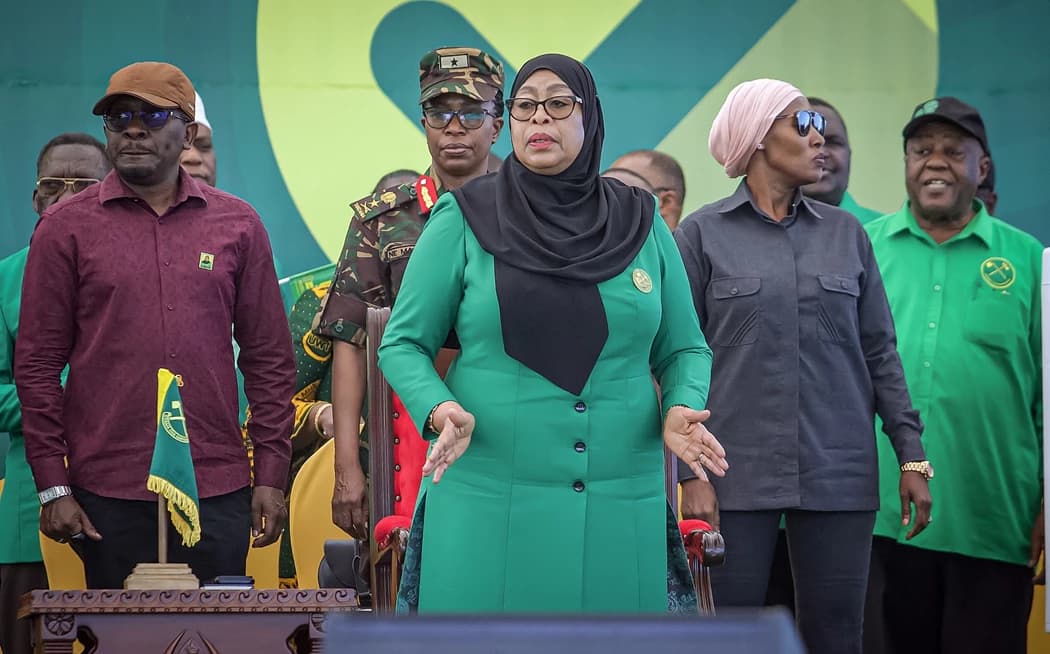We're loading the full news article for you. This includes the article content, images, author information, and related articles.
The move to criminalize digital dissent signals deepening authoritarianism in a key EAC partner, with immediate economic and security implications for Kenya as cross-border trade is disrupted.

DAR ES SALAAM, Tanzania – In a significant escalation of its post-election crackdown, the Tanzanian government has warned it will press treason charges against individuals using social media and mass texts to incite unrest or mock national leaders. The Tanzania Police Force issued the stern warning in nationwide text messages on Monday, 4 November 2025, amidst a political crisis following the heavily disputed general election of Wednesday, 29 October 2025.
The messages, sent to millions of citizens, cautioned against sharing any content that could “cause alarm, provoke unrest, or demean the dignity of others,” defining such actions as severe criminal offenses. This directive follows the controversial election where incumbent President Samia Suluhu Hassan was declared the winner with over 97% of the vote after the main opposition parties, Chadema and ACT-Wazalendo, were barred from participating.
The election and its aftermath have been marred by violent protests, a near-total internet shutdown, and the deployment of the military in major cities. Opposition parties have rejected the results as fraudulent, with Chadema officials claiming that hundreds of people have been killed in clashes with security forces—a figure the government has not confirmed. The United Nations Human Rights Office has cited credible reports of at least 10 deaths.
The threat to use treason charges for online speech marks a severe interpretation of national security laws. According to Tanzania's Penal Code, under Chapter VII, Section 39, treason is defined by acts such as levying war against the state or conspiring with foreign powers to invade—offenses far removed from digital communication. Legal analysts and human rights organizations argue that applying this capital offense to online mockery or criticism is a form of “lawfare” designed to silence dissent and solidify single-party rule.
This move is consistent with the government's broader use of restrictive legislation to control the digital space. The Cybercrimes Act of 2015 and the Electronic and Postal Communications (Online Content) Regulations of 2020 already grant authorities sweeping powers to police online expression, criminalizing the publication of “false information” and requiring online content creators to be licensed. The leader of Chadema, Tundu Lissu, was himself arrested and charged with treason in April 2025 for calling for electoral reforms.
Speaking at her heavily secured, non-public inauguration ceremony in Dodoma on Monday, 3 November 2025, President Suluhu blamed the unrest on unnamed “foreign actors” and vowed to defend the nation’s sovereignty “through all means and at all cost.”
The escalating crisis in Tanzania has direct and immediate consequences for Kenya and the wider East African Community (EAC). The most significant impact has been the disruption of cross-border trade. Protests and violence at the Namanga One-Stop Border Post have paralyzed the movement of goods, leading to significant economic losses. Reports from Monday indicated that agricultural goods were rotting in trucks stranded for days due to the border closure.
The Namanga border is a critical economic artery, clearing approximately 250 trucks daily. Bilateral trade between Kenya and Tanzania reached approximately KSh 102.8 billion ($905.5 million) in the first eleven months of 2021, highlighting the substantial value of commerce now at risk. The instability threatens to unravel years of progress in regional integration and could force a costly rerouting of cargo to Kenya's Port of Mombasa, straining its capacity.
In response to the unrest, Kenya has heightened security along its border points, including Namanga, Taveta, Isebania, and Lunga Lunga. Interior Principal Secretary Raymond Omollo confirmed the deployment on 30 October 2025, stating that security agencies were on high alert to prevent any spillover of violence. On Monday, 3 November 2025, Kenyan President William Ruto issued a statement calling for dialogue among Tanzanian stakeholders to maintain national stability.
The Tanzanian government's move to equate online dissent with treason sets a dangerous precedent for freedom of expression across the EAC. While the EAC has frameworks for harmonizing cyber laws, the reality is often dictated by the domestic political priorities of member states. The weaponization of such laws in Tanzania could embolden other states in the region to adopt similar measures to suppress opposition and control online narratives.
For Kenya, which has a more vibrant, and often contentious, digital civic space, the developments in its neighbouring country are a stark reminder of the fragility of digital rights. The situation underscores the tension between the EAC's goals of economic integration and the divergent political paths of its members. As Tanzania's government doubles down on its repressive tactics, the economic and democratic health of the entire East African region hangs in the balance. FURTHER INVESTIGATION REQUIRED into the specific response from opposition parties to the treason warning.
Keep the conversation in one place—threads here stay linked to the story and in the forums.
Sign in to start a discussion
Start a conversation about this story and keep it linked here.
Other hot threads
E-sports and Gaming Community in Kenya
Active 9 months ago
The Role of Technology in Modern Agriculture (AgriTech)
Active 9 months ago
Popular Recreational Activities Across Counties
Active 9 months ago
Investing in Youth Sports Development Programs
Active 9 months ago
Key figures and persons of interest featured in this article